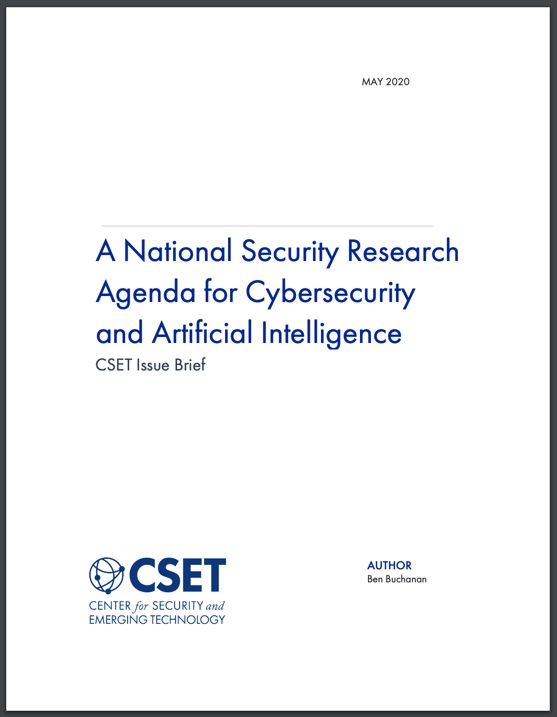The intersection between cybersecurity and artificial intelligence is ripe for serious study from a variety of angles. There are purely technical aspects of great importance, such as how artificial intelligence changes the discovery of software vulnerabilities useful for hacking computer systems and the capacity for defenders to detect malicious code within their networks. Yet many of these technical questions have already been well-specified and are the subject of promising inquiries. This research agenda instead examines a different angle, one of national security.1
A national security-driven research agenda is informed by technical evidence, but not limited by it. It considers how the balance of technical facts shapes questions likely to matter to national security policymakers and scholars who would otherwise overlook the technology. More generally, it offers policymakers a set of questions—and, someday, answers—that they should consider, but that are probably unfamiliar to them.
This agenda focuses on the machine learning paradigm of artificial intelligence. It has four components: offense, defense, adversarial learning, and overarching questions.
The importance of speed could increase the need for quick decisions based upon complex and incomplete information, perhaps raising the risk of misinterpretationBen Buchanan
- Offense considers the ways in which machine learning might change the techniques adversaries already use to gain unauthorized access to computer systems, from discovering software vulnerabilities to infiltrating a target system and beyond.
- Defense considers how machine learning systems can aid in detecting and responding to intrusions, as well as remediating malicious code.
- Adversarial learning examines the cybersecurity weaknesses of machine learning systems themselves and the data upon which they depend.
- Overarching questions examine the ways in which the properties and powers of machine learning systems can change the strategy and conduct of cyber operations, from influence campaigns to accident risks to strategic stability and beyond.
Each section contains several key questions, including some whose answers will be complex and context-dependent; the discussion that follows is an illustrative, rather than exhaustive, list.
Download Full Issue Brief
A National Security Research Agenda for Cybersecurity and Artificial Intelligence- Other research questions have been articulated in areas beyond national security. See for example Ben Buchanan and Taylor Miller, Machine Learning for Policymakers: What It Is and Why It Matters (Belfer Center for Science and International Affairs, 2017); Arjun Panesar, Machine Learning and AI for Healthcare: Big Data for Improved Health Outcomes (Apress, 2019).
